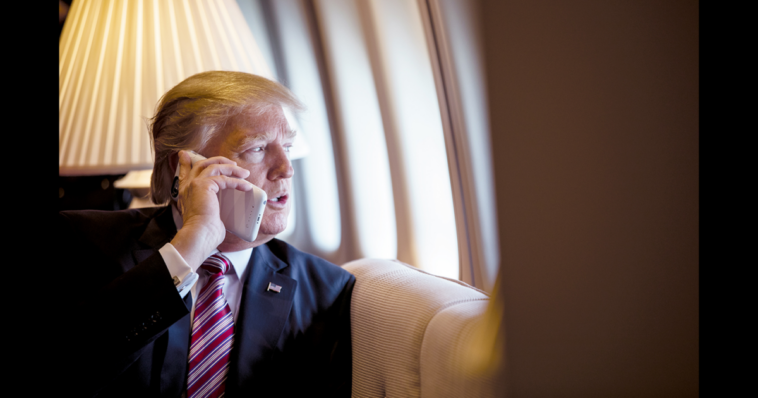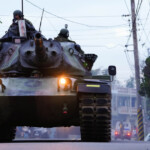
This story originally was published by Real Clear Wire
By Farrell Gregory
Real Clear Wire
It may only be a coincidence that Germany’s ruling coalition came apart the day after Donald Trump was reelected to the presidency.
It may only be a coincidence that Germany’s ruling coalition came apart the day after Donald Trump was reelected to the presidency. Already, the fractious alliance between the Social Democrats, Free Democrats, and Greens had been strained amid low poll numbers, economic stagnation, and an increasingly uncertain outlook for European security. Earlier this week, Chancellor Olaf Scholz lost a no-confidence vote in parliament, officially dissolving the current government and paving the way for snap elections in February. Whether America’s election played any role, the collapse of the coalition nevertheless reflects an inescapable reality: Germany’s military can no longer afford to remain underfunded and diminished.
After Russia’s 2014 invasion of Crimea, NATO member states pledged to each spend 2 percent of their GDP on defense. As many NATO members subsequently failed to spend at that level, President Trump accused them of benefitting from American security spending while underinvesting in their own military capabilities and underestimating the threat of Russia. When Russia invaded the entirety of Ukraine in 2022, only six of the thirty-two countries met that goal. As European defense neglect came under even sharper scrutiny during the war, that number rose to twenty-three countries, including Germany, which for years had spent a particularly low percentage of its GDP on defense.
Following the 2022 invasion, the German government announced a Zeitenwende, or turning point, in military policy. Chancellor Scholz declared a revitalization of Germany’s warfighting posture and defense industrial base. His government created a $100 billion dollar fund for modernizing the military – even changing the constitution in the process. Subsequently, it initiated an effort to invest in “key” defensive technologies, committed to stationing a brigadein Lithuania, and explored the possibility of expanding the armed forces from 180,000 to 200,000.
But despite these lofty aspirations, the German government’s turning point has largely consisted of spinning its wheels. The $100 billion fund will be spent in two to three yearswith no additional funds having been allocated. This lack of long-term planning has hampered industrial and private sector efforts to increase the country’s defensive production capacity. Beyond this, the agreed-to brigade in Lithuania remains unfunded, although Lithuania has begun work on the required construction. Similarly, without dramatic increases in funding, Germany’s substantial aid to Ukraine has hollowed its own defensive capabilities. According to a report by the Kiel Institute for the World Economy, it would take Germany one hundred years to return to 2004 levels of military readiness at current levels of funding.
Germany is not spending enough – thankfully, it is capable of spending much more. Among other large European nations, it has a particularly low debt/GDP ratio: 63 percent for Germany compared to 111 percent in France and 101 percent in the UK. Public opinion is firmly on the side of increased defense funding, with a survey earlier this year finding that 68 percent of respondents favored higher spending. It is an opinion shared by German Defense Minister Boris Pistorius, who has repeatedly stated that “we need to spend more money.” How much money is an open question. But in 2023, the Commissioner for the Armed Forces, Eva Högl, stated that the special military fund needed to be increased to $300 billion. For reference, Germany’s 2024 defense budget was just over fifty billion euros. When it takes form, the next government will be able to weigh what’s needed and what’s feasible, but it will have to reckon with a simple truth: its days of an underfunded military are over.
After the February elections, two factors will shape how Germany approaches its defense spending. First, President Trump will be back in office and wants Germany to provide its fair share of NATO obligations. These days, threats to European security mean that ‘fair share’ is closer to four percent of GDP than two. Second, with the potential for a negotiated settlement to the Ukraine war, a strong deterrent posture will more important than ever – something that cannot be achieved without a strong Germany.
The rest of NATO cannot wait for Germany to overcome its internal obstacles. The security realities in Europe have made adequate defense spending imperative for the entire continent. And this is not Germany’s problem alone – a deficient security posture for Europe’s largest economy weakens the entirety of NATO. With the threats that face Germany, February’s elections should serve as a second turning point towards renewed defensive strength.
Farrell Gregory is research assistant at the Yorktown Institute and chief editor of the Emerging Threats Journal. He is currently a visiting student at Mansfield College, Oxford, studying politics, philosophy, and economics.
This article was originally published by RealClearDefense and made available via RealClearWire.


